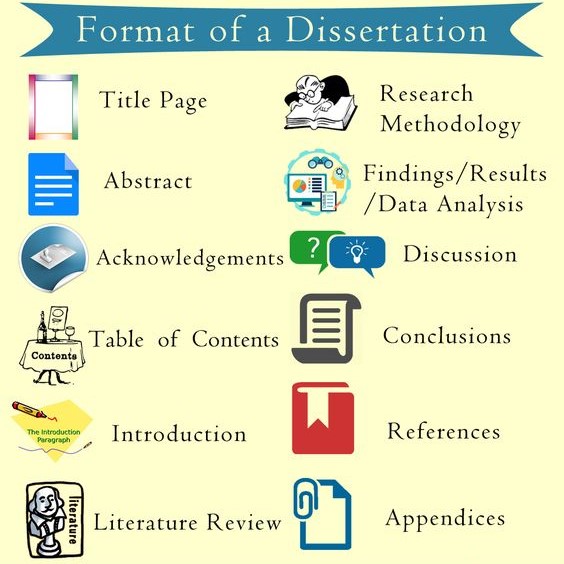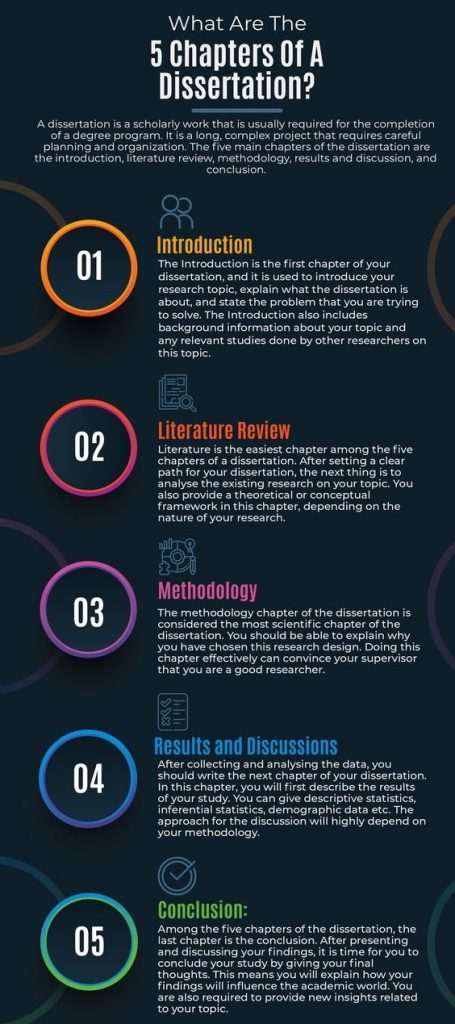The dissertation is an elaborate project, often looming over the final years of your academic journey. The very word can induce a shiver of apprehension, but fear not! With the right approach, you can conquer this academic mountain and emerge triumphant.
The following guide offers practical tips and strategies to help learners to navigate the complex process of dissertation writing, ensuring a smooth and successful journey.
What is a Dissertation?
A dissertation is a long, formal piece of writing that is submitted in fulfilment of the requirements for a doctoral degree, such as a PhD or a Doctor of Education (EdD). Here's a breakdown of what defines a dissertation:

Key Characteristics:
- Original Research: A dissertation presents original research conducted by the candidate. This research is typically extensive and in-depth, requiring significant time and effort.
- Scholarly Contribution: The research should aim to contribute new knowledge or insights to a specific field of study. It's not just a summary of existing research, but a unique contribution to the academic body of knowledge.
- Structured Format: Dissertations follow a standardized format, typically consisting of several chapters:
- Introduction: Presents the research topic, its significance, and the research questions.
- Literature Review: Summarizes and analyzes existing research related to the topic.
- Methodology: Explains the research design, data collection methods, and data analysis techniques.
- Results: Presents the findings of the research.
- Discussion: Interprets the results, draws conclusions, and discusses the implications of the research.
- Conclusion: Summarizes the key findings and contributions of the dissertation.
- Defense: After completion, the dissertation is defended orally in front of a panel of experts in the field. This defense involves a rigorous questioning of the research and its findings.
The Purpose of a Dissertation
- Demonstrate mastery of the field: A dissertation serves as a culmination of the doctoral candidate's studies, demonstrating their mastery of their chosen field.
- Develop independent research skills: The process of researching, writing, and defending a dissertation fosters the development of essential research skills, critical thinking, and analytical abilities.
- Contribute to academic knowledge: A dissertation aims to expand the understanding of a particular subject area through original research and analysis.
While a dissertation is typically associated with doctoral degrees, some Master's programs may also require a research thesis or dissertation, although it is usually shorter and less comprehensive.
In essence, a dissertation is the culmination of a doctoral student's journey, showcasing their research expertise and their ability to make a meaningful contribution to their chosen field.
Essential Strategies for Dissertation Writing
1. Laying the Foundation: The Importance of a Solid Proposal
The first step in tackling dissertation writing is creating a strong proposal. This document serves as your roadmap, outlining the research question, methodology, and anticipated outcomes. It’s essential to invest significant time and effort into crafting a comprehensive and well-defined proposal.
- Choose a captivating topic: Passion is your fuel in this marathon. Select a research area that truly excites you, as this will keep you motivated throughout the process.
- Refine your research question: A well-articulated research question is the foundation of a successful dissertation. Ensure it's specific, measurable, achievable, relevant, and time-bound (SMART).
- Thorough literature review: A comprehensive understanding of existing research is crucial. Delve deeply into the relevant literature, identifying gaps and establishing a solid foundation for your contribution.
- Methodology matters: Clearly outline your research methods, ensuring they are appropriate for your research question and contribute to your desired outcomes.
2. Research: A Journey of Discovery
With a strong proposal in hand, you can embark on the exciting journey of research. This phase requires meticulousness, organization, and critical thinking.
- Stay organized: Develop a robust system for collecting, organizing, and referencing your research materials. This could involve digital folders, annotated bibliographies, or specialized research software.
- Embrace the digital age: Utilize online databases, scholarly journals, and research tools to expand your knowledge base. Established academic platforms such as Google Scholar and PhDnursewriter offer well-articulated and published scholarly articles for in-depth research at your convenience.
- Seek out diverse perspectives: Don't confine yourself to a single source or perspective. Explore a wide range of viewpoints and methodologies to broaden your understanding.
- Keep a research log: Document your research process, including insights, challenges, and breakthroughs. This log will be invaluable during the writing phase.
The Art of Writing: Weaving a Narrative from Research
Once your research is complete, it's time to transform raw data into a compelling narrative. This is where the true dissertation writing magic begins.
- Structure your narrative: Develop a clear and logical structure for your dissertation, typically including an introduction, literature review, methodology, results, discussion, and conclusion.

- Craft compelling arguments: Present your findings in a clear and convincing manner, drawing connections between your research and existing literature.
- Use evidence to support your claims: Back up your arguments with robust evidence from your research, referencing sources appropriately.
- Engage with opposing viewpoints: Acknowledge and address alternative perspectives, demonstrating intellectual rigor and a balanced approach.
Common Dissertation Writing Challenges and How to Avoid Them
Dissertation writing can be a daunting process, riddled with potential pitfalls. Recognizing these challenges and implementing preventative measures can make a significant difference.
- Procrastination is the enemy: Break down the writing process into manageable chunks, setting realistic deadlines for each section.
- Perfectionism can paralyze: Remember, your dissertation is a work in progress. Focus on completing sections rather than striving for immediate perfection.
- Don't be afraid to ask for help: Utilize academic support services, such as writing centers or research librarians, to overcome challenges and refine your work.
- Seek feedback from mentors and peers: Engage in constructive criticism to identify areas for improvement and refine your arguments.
The Power of Revision: Polishing Your Masterpiece
Revision is an essential part of dissertation writing. This is where you refine your language, strengthen your arguments, and ensure your work flows seamlessly.
- Take a break: Step away from your dissertation for a few days, then return with a fresh perspective.
- Read aloud: Reading your work aloud can help identify awkward phrasing, repetitive sentences, and inconsistencies.
- Seek feedback from others: Share your work with trusted peers, mentors, or colleagues for constructive feedback.
- Pay attention to style and formatting: Ensure your dissertation adheres to the prescribed formatting guidelines and scholarly conventions.
Staying Motivated: Strategies for Success
Maintaining motivation throughout the dissertation writing journey can be challenging. The following strategies can help you to stay on track.
- Set realistic goals: Break down the process into smaller, manageable tasks, setting realistic deadlines for each stage.
- Celebrate milestones: Acknowledge and reward yourself for completing each section, fostering a sense of accomplishment.
- Find a supportive community: Connect with other graduate students, mentors, or online forums to share experiences, offer support, and stay motivated.
- Prioritize self-care: Ensure you're getting enough rest, exercise, and time for relaxation to maintain your mental and physical well-being.
The Final Stretch: Submission and Beyond
With the dissertation submitted, the journey isn't over. The final stages involve addressing any feedback, finalizing the document, and potentially preparing for your defense.
- Respond to feedback thoughtfully: Acknowledge and address feedback from your committee, demonstrating your willingness to learn and refine your work.
- Finalize your dissertation: Make all necessary edits and corrections, ensuring your work is polished and ready for submission.
- Prepare for your defense: Practice your presentation, anticipating potential questions from your committee.
Beyond the Dissertation: Building Upon Your Success
The dissertation writing journey isn't simply about completing a degree requirement. It's about acquiring valuable skills and knowledge that can shape your future career.

- Publish your research: Consider submitting your dissertation or portions of it for publication in academic journals.
- Present your work: Share your findings at conferences, workshops, or seminars, expanding your reach and gaining valuable feedback.
- Apply your expertise: Utilize the skills and knowledge you gained during the dissertation writing process to pursue professional opportunities in your chosen field.
Dissertation writing is a demanding but immensely rewarding experience. By approaching it with a clear strategy, embracing the challenges, and utilizing the tips outlined in this article, you can navigate this academic journey with confidence and emerge as a skilled and accomplished scholar. Remember, your dissertation is not just a culmination of your academic journey, but a testament to your intellectual growth, resilience, and passion for knowledge. Embrace the process, persevere through the challenges, and celebrate your accomplishment. The world awaits your contribution.
Get Professional Dissertation Writing Service
Dissertation writing is an elaborate and complex academic assignment that can be very challenging even to top-performing learners. However, you can easily avoid the pressures of writing dissertations with professional dissertation writing services from exemplarydissertations. We offer customized help with dissertations for a wide range of courses including nursing, law, marketing, engineering, business management and hospitality.